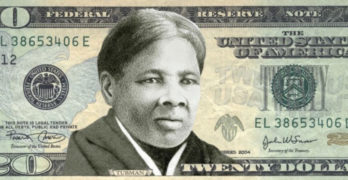 The Aging, Sagging Fruits of Feminism
The Aging, Sagging Fruits of Feminism
Patrice Lewis shares lament from single woman longing for life’s milestones
Ain’t feminism great? It’s opened so many doors for women. No longer held back by the male patriarchy, women are free to compete in the most cut-throat professions, to seek the most prestigious careers, to run for the highest political offices. Women today are far more educated, well-read, erudite and independent than their sad, sorry sisters of 50 years ago. Wonderful, isn’t it?
Feminists got what they wanted, but – and I know this comes as a shocking surprise – they aren’t happy.
Yet happiness, according to many progressive sources, was never a goal of feminism. Instead, feminism is meant to increase women’s “control, self-respect and privacy” and construct women as “healthy, independent and assertive.” Some saw women’s liberation as an “oppressed people raising their consciousness toward something that is the other side of anger, something bright and smooth and cool.” Feminism allows women to reach their “full potential.”
Dismissing as flawed a 2006 study that determined a “traditional” model (with primary male breadwinner) made women happier, Pamela Haag noted in the Huffington Post: “But, more to the point, the [study’s] headlines blame feminism for not achieving a goal that wasn’t feminism’s to begin with. It’s like saying pole vaulting has failed to solve the health-care crisis.”
And there you have it, folks. Feminism was never meant to make women happy!
I supposed this is good, because feminists sure aren’t (happy, that is). They got what they wanted – independence – and it appears they don’t like it. They remain bitter, vitriolic, angry, hostile and “insane” (that adjective was my husband’s contribution).
They have figuratively and literally divorced themselves from the benchmarks of womanhood: Husband, children, domesticity, hearth, home. They chose instead to concentrate on their education, their careers, and their eternal and imaginary fight against male dominance.
But once in a while, the façade of unified “sisterhood against the patriarchy” cracks, and a glimpse of naked raw emotion oozes out.
Consider this heartbreaking essay by a feminist named Aimée Lutkin entitled “When Can I Say I’ll Be Alone Forever?” in which she mourns her “strange single purgatory”:
I don’t know that it really matters why I’m single, nor am I particularly interested in the eternal back and forth over who has it better: couples, singles, the hardworking polyamorous – we all suffer and benefit from our respective situations. … Looking ahead, if I really am riding this train to the end of the tracks, I don’t see any of the grand events in my future that help ground and timeline human existence, the events being in love provides. After my best friend got married she told me she cried all the next day, overwhelmed by the outpouring of affection from everyone she knew. She deserves it all, but years later, still single, I’ve realized that there will be no similar ceremonious acknowledgment of my life or my relationships with friends and family. Until I’m dead, I guess, but that won’t be very fun for me. Anchoring my existence without the signposts of commitment, or children, is a lot of work, and sometimes I feel myself giving up on it, drifting off into a gray directionless space in danger of floating completely away.
Correct me if I’m wrong, but this strikes me as a lament for the very things feminists purport to be against: the warmth of domesticity, the love of a good man, the legacy of children.
“It’s obviously not a ‘good life,’ as Aimée is miserable,” notes Lee Jackson with deadly precision.
The feminist worldview she still espouses and advocates for is leading her to the grave lonely and childless. Marriage and children are indeed ‘anchors’ of existence, giving meaning, purpose and focus outside one’s own thoughts. She instinctively knows what she’s missing, yet cannot find it. Keep your daughters from the poison of feminism so they don’t end up in the same state as Miss Lutkin. Your progressive worldview will never love and cherish you, no matter how committed you may be to it. It will never hug your leg tightly and say ‘I love you, mommy.’ It won’t be there to hold your hand in your old age. The fruits of feminism are loneliness, bitterness and a lasting heartache that Merlot and cats can never fill.
So what happens when a feminist ages?
Many of us fondly remember the sagging cheeks and silver hair of our grandmother. She baked us treats, read us stories on her lap, lavished us with affection and kissed us goodnight in the guest bed on those cozy sleepovers when Mom and Dad went off on a special overnight trip.
But elderly feminists – if they’ve stayed pure to the ideal that women need men like fish need bicycles – have no such reputation. Their sagging cheeks and silver hair frames a bitter mouth and angry eyes. They’ll somehow blame the “patriarchy” for their lifetime of spinsterish solitude, while envying the younger feminists who are out marching the streets for free abortions. But they can’t join the march because they can’t move fast enough with their walkers, particularly so soon after their hip replacement.
So they’ll stay home and stew, lamenting the fact that no one remembers or respects their sacrifices while still bitterly lambasting the traditionalist women turncoats who are honored and loved and cared for by their families and children.
But who cares? With a lifetime of sisterhood under their belts, these aging feminists can take solace in their supposed solidarity. Arguing against the need for happiness as an outcome of feminism, Pamela Haag concludes: “I pull out Gloria Steinem’s 1973 essay, ‘Sisterhood,’ from my private archive. She wrote, ‘I have met brave women who are exploring the outer edge of human possibility, with no history to guide them and with a courage to make themselves vulnerable that I find moving beyond words.’ Cool. That beats happy any day.”
Have at, sister. I’m glad you found what you were looking for.
Copyright © 2017, Patrice Lewis WND-All rights reserved.
Here another interesting post: Will Manliness Make A Comeback In 2018?


















































